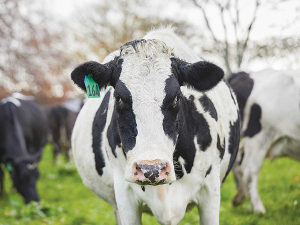Damien O’Connor: NZ united on global trade
When it comes to international trade, politicians from all sides of the aisle are united, says Labour's trade spokesman Damien O'Connor.
 Allowing Mycoplasma bovis to spread could cause $1.3 billion in economic losses in the first ten years.
Allowing Mycoplasma bovis to spread could cause $1.3 billion in economic losses in the first ten years.
Southland has reached a landmark zero cases of the cattle disease Mycoplasma bovis but the Government says this isn’t the time for complacency.
At the height of the M. bovis response, there were 27 active properties in the region.
Biosecurity and Agriculture Minister Damien O’Connor last week extended his thanks and congratulations to the Southland farming community.
“Southland farmers were really hard hit by this disease and they’ve done the hard yards to get to this point. Full credit to them for the sacrifices they have made for the national good,” O’Connor said.
He says the achievement is a testament to the cooperation shown between farmers, government and industry groups.
“This is a 10-year programme so we need to expect that new cases will pop up from time to time, but I think it’s important to acknowledge and celebrate success along the way.
“We can’t afford to take our foot off the pedal though. Farmers need to ensure all their animals are tagged and recorded in the National Animal Identification and Tracing (NAIT) system to ensure we can trace them, should we need to.
“There’s no excuse now for farmers not knowing what they need to do to be compliant and I was very pleased to see last week a successful prosecution of a Waikato farmer for not registering 152 of his cattle. Behaviour like this makes a mockery of the heartbreak affected farmers and their families have gone through.
“If we’re going to be the first country in the world to beat this disease, every cattle farmer in the country has to play their part.”
M.bovis was first detected in New Zealand on 22 July 2017, after a large number of cattle in a South Canterbury dairy herd began displaying symptoms of a novel disease.
M.bovis had not previously been detected in New Zealand, and it was soon established that this was a new incursion that occurred around early 2015, and the disease was not widespread throughout the national cattle herd.
It was estimated that allowing the disease to spread could cause $1.3 billion in economic losses in the first ten years, along with substantial animal welfare issues, and serious ongoing challenges for farmers having to manage the disease within their herds.
In May 2018, the Government and industry bodies made the decision to attempt a world-first eradication of this disease.
The estimated budget for the ten year programme is $870 million.
Disease stats
250 total confirmed properties – 3 active, 247 cleared
Breakdown:
• 58 dairy, 137 beef, 55 other
• 69 North Island, 181 South Island
• 157,950 animals culled
• 1,541,392 tests completed
• $168.1 million compensation paid
One of New Zealand’s longest-running pasture growth monitoring projects will continue, even as its long-time champion steps away after more than five decades of involvement.
The Insurance & Financial Services Ombudsmen Scheme (IFSO Scheme) is advising consumers to prepare for delays as insurers respond to a high volume of claims following this week's severe weather.
Additional reductions to costs for forest owners in the Emissions Trading Scheme Registry (ETS) have been announced by the Government.
Animal welfare is of paramount importance to New Zealand's dairy industry, with consumers increasingly interested in how food is produced, not just the quality of the final product.
Agriculture and Forestry Minister Todd McClay is encouraging farmers and growers to stay up to date with weather warnings and seek support should they need it.
The closure of SH2 Waioweka Gorge could result in significant delays and additional costs for freight customers around the Upper North Island, says Transporting New Zealand.
OPINION: There will be no cows at Europe's largest agricultural show in Paris this year for the first time ever…
OPINION: Canterbury grows most of the country's wheat, barley and oat crops. But persistently low wheat prices, coupled with a…